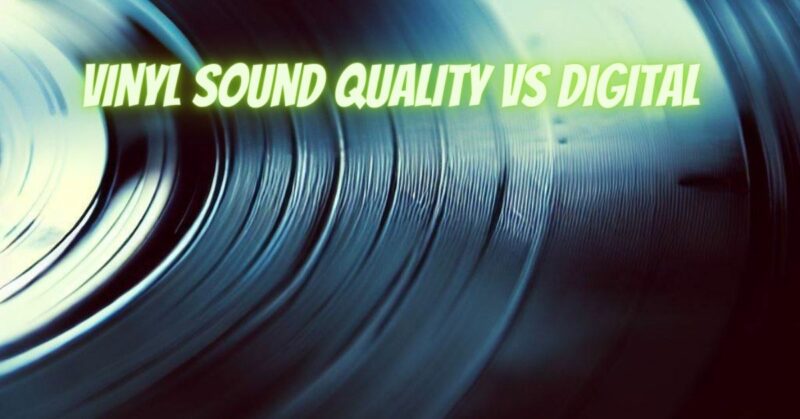The ongoing debate between vinyl enthusiasts and digital music proponents revolves around the sound quality of these two formats. Vinyl records offer a distinct and nostalgic listening experience, while digital music provides convenience and accessibility. In this article, we will explore the differences between vinyl sound quality and digital formats to shed light on their unique characteristics.
Vinyl Sound Quality:
- Warmth and Character: Vinyl records are known for their warm and rich sound. The analog nature of vinyl captures the nuances and imperfections of the original recording, adding a unique character to the sound. Many listeners appreciate the natural compression, subtle distortions, and warmth that vinyl brings to the music.
- Dynamic Range and Frequencies: Vinyl records have limitations in dynamic range and frequency response compared to digital formats. The nature of the physical medium and playback equipment can introduce noise, surface noise, and potential degradation over time. However, these limitations are often considered part of the vinyl experience and can contribute to the charm and authenticity of the sound.
Digital Sound Quality:
- Precision and Clarity: Digital music formats, such as CDs or lossless digital files (e.g., FLAC), offer precise and accurate sound reproduction. Digital formats are capable of capturing a wider dynamic range and a broader frequency spectrum than vinyl. They can reproduce intricate details and subtle nuances of the original recording with clarity and transparency.
- Consistency and Durability: Digital music is immune to the wear and degradation associated with physical media. Each digital file or stream is an exact replica of the original recording, ensuring consistent sound quality across multiple copies. Digital formats can be stored and accessed easily, providing long-term durability and portability.
Factors to Consider:
- Equipment and Setup: The quality of playback equipment, including turntables, cartridges, amplifiers, and speakers, significantly influences the sound quality of vinyl records. Similarly, the digital music listening experience depends on the quality of the DAC (digital-to-analog converter), amplifier, and speakers used. Investing in high-quality equipment can enhance the sound quality in both formats.
- Mastering and Production: The mastering and production techniques employed during the creation of vinyl records and digital releases play a crucial role in sound quality. A well-mastered vinyl record or a high-quality digital master can greatly enhance the listening experience.
Conclusion:
The choice between vinyl sound quality and digital formats ultimately depends on personal preference, priorities, and the listening experience one seeks. Vinyl offers a nostalgic, warm sound with unique character, while digital formats provide precision, clarity, and convenience. Both formats have their merits and appeal to different listeners. Ultimately, it’s about finding the format that aligns best with your preferences, equipment setup, and the overall enjoyment of music.


